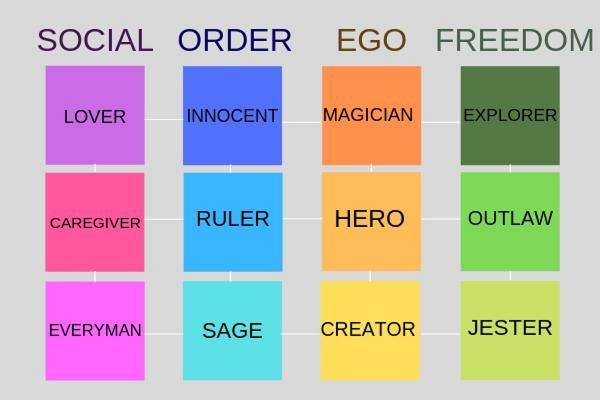The Importance of Brand Personality in the Retail Industry
An increasing number of consumers are using their emotions, and not their wallets, to make purchase decisions. How a brand expresses itself can make or break their relationship with their customers. Companies need to look at the culture surrounding them and integrate themselves into it as best they can.
What is Brand Personality?
A retail brand’s personality is the human element that consumers relate to when they deal with or think of a brand. How they feel about the brand then trickles down to the way they feel about the product or service. It is of great importance that a brand clearly defines its personality in order to resonate with its consumers. The question is not whether a business has a brand personality, it is whether that brand chooses to mould and cultivate their personality for themselves, or lets the public do it for them.
The 12 Personality Archetypes
Psychologist Carl Jung identified twelve universal characteristics that exist in the human mind. These same qualities can be used to recognise which personality traits a brand represents. One thing that all the most successful brands have in common is that they have very clear and identifiable personalities. Take Mercedes, their personality embodies leadership, success, and importance, they fall under the ‘Ruler’ archetype. On the other hand, Dove brings feelings of innocence and optimism, so they are under the ‘Innocent’.

Benefits of Cultivating a Brand Personality
Strong clear brand personalities are a sure-fire way to stand out from competitors. It can help consumers understand and connect with you in a positive way, which can then create brand loyalty. A retail brand’s personality helps attract the right customers, at the right time.
Consumers are drawn to retail brands with personalities that they find appealing. If you want to target active, sporty consumers, the ‘Hero’ archetype could be the right fit for you. If ethically conscious consumers are more suited, the ‘Caregiver’ or ‘Lover’ personality might jump out. If your brand is all about connecting with others and equal opportunity, the ‘Everyman’ is one to consider.
Developing your Brand’s Personality
- The first step to developing your brand’s personality is to decide who you are. It’s very rare that you will be able to completely reinvent yourself in the public eye, so figuring out how you are currently seen, and trying to build on that, is a solid starting step.
- Get to know your consumers and figure out the best way to relate to them. If you aren’t relatable, you are not representing your best self.
- Once you’ve figured out step one and two, you should begin deciding on what archetype you best fit under. It’s a good base to establish your personality, and is something that you can always go back to if you are unsure or weary about what fits.
- Decide on a tone of voice and stick to it. Refer back to the first three steps when you are doing this. There’s no one size fits all when it comes to tone of voice, it varies completely from brand to brand.
- Lastly, use your marketing to develop this personality. Your content and brand marketing are particularly beneficial in doing this. However, integration is key, so the same personality traits should be evident in every area of your company.

The Consumer’s Perception
At the end of the day, no matter how much time and effort you put into defining your brand personality, the consumer’s perception is what matters. Just because you have decided you want your consumers to feel a certain way when they think of you, doesn’t mean they will. It’s just as important to monitor your consumer’s responses and adequately respond as it is to express and represent yourself in a suitable fashion.
Looking for more retail insights? Visit this year’s Autumn Fair and take part in the free workshops and seminars to help your business stand out from your competitors.
